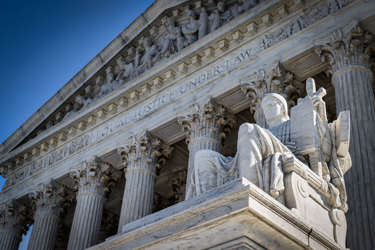Water Scarcity At Center Of Florida-Georgia Supreme Court Battle


A source water dispute between Florida and Georgia has been on the radar of the country’s highest court for years, and it is now again attempting to find some kind of reconciliation as drought conditions worsen and drinking water sources are more imperiled than ever.
The controversy revolves around the Flint, Chattahoochee, and Apolachiola rivers, with Florida arguing that by the time water runs through the first two bodies in Georgia to reach the third in its borders, there isn’t enough left for its oyster farms. Meanwhile, Georgia blames Florida for mismanaging the resource and overfishing.
Florida originally filed a lawsuit directly with the Supreme Court, which has appointed two special masters to evaluate the case, both of whom recommended that Georgia should win it. Florida has objected to the most recent recommendation and the Supreme Court is now considering its argument.
“Florida is seeking a court order forcing Georgia to limit its use of water from the Flint,” AP reported. “When the justices first heard the dispute three years go, Florida also was claiming that the Atlanta area’s consumption of water from the Chattahoochee river also played a big role in the reduced flows in Florida, but that claim has fallen out of the case.”
A key difference now is that the Supreme Court is made up of different judges — Brett Kavanaugh and Amy Coney Barrett have both joined since the arguments were originally heard. Their philosophies could determine the ultimate winner of the case and, if they were to differ with their predecessors, that would most likely be Georgia.
“The outcome could come down to the views of the two newest justices … who were not yet on the court when it heard the dispute in 2018,” according to AP. “The justices they replaced, Anthony Kennedy and the late Ruth Bader Ginsburg, both voted with Florida.”
The court is expected to make a decision by late June. Whatever it decides, the ruling will have a significant impact on the types of disputes that are likely to become all the more common as climate change and other stressors create nationwide source water scarcity. And, of course, it should bring to an end what has become a drawn-out legal battle between neighboring states.
“The case has cost Georgia taxpayers upward of $49 million in legal fees — Floridians even more,” The Atlanta Journal-Constitution reported. “It’s expected to set a legal precedent as climate change makes droughts and other extreme weather events more common in eastern U.S. states.”
To read more about how drought impacts water systems around the country, visit Water Online’s Source Water Scarcity Solutions Center.
